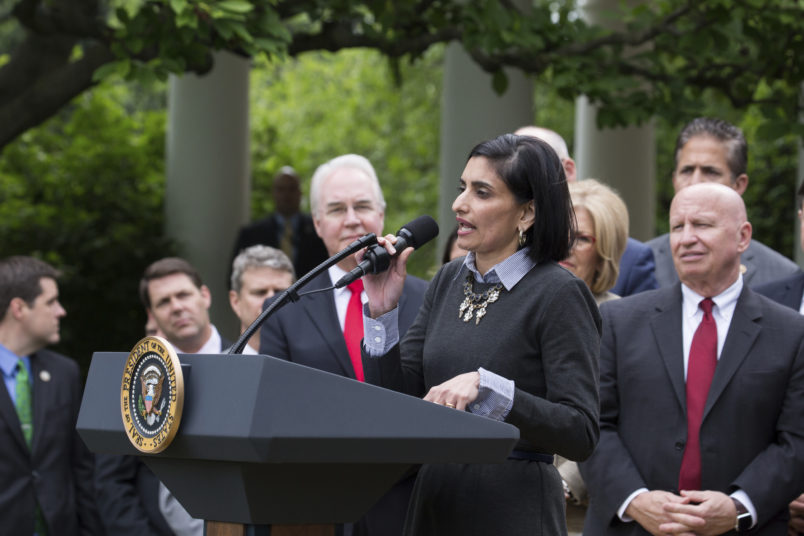In the spring, when the Centers for Medicare and Medicaid Services (CMS) announced a delay in the implementation of several bundled payment models, there was a sense among opponents of the proposed rules that it would be possible to eliminate that reimbursement structure altogether. A fresh proposal last week suggests the theory was correct.
The CMS declared an intent to scrap the mandatory payment model for cardiac care and significantly scale back the corresponding approach for orthopedic procedures.
“This proposed rule proposes to cancel the Episode Payment Models (EPMs) and Cardiac Rehabilitation (CR) incentive payment model and to rescind the regulations governing these models,” the announcement begins.
The Comprehensive Care for Joint Replacement (CJR) model will stay on the books under the proposed modifications, but it will be shifted to a voluntary program for dozens of hospitals.

Seema Verma, Administrator of the Centers for Medicare and Medicaid Services under the Trump Administration, speaks at President Trump’s press conference with members of the GOP, on the passage of legislation to roll back the Affordable Care Act, in the Rose Garden of the White House, On Thursday, May 4, 2017. (Sipa USA via AP)
A cost control measure that was included in the massive Affordable Care Act legislation, the bundled payment model was vocally opposed by Tom Price, the Georgia congressman President Donald Trump brought onboard as U.S. Secretary of Health and Human Services.
While the announcement represents a significant adjustment to the financial landscape for hospitals and other healthcare facilities, there’s reason to believe that the movement toward value-based care will continue.
“Yes, there was a segment of the industry that had invested resources into mandatory models,” Brian Fuller, vice president of value-based care for naviHealth of Tennessee, told Healthcare Finance. “The form their participation takes, changes. We believe that’s a positive for them. They can choose what their participation looks like in the next voluntary program. It creates a blank sheet of paper.”
The proposed changes are subject to a public comment period of 60 days before official implementation.




